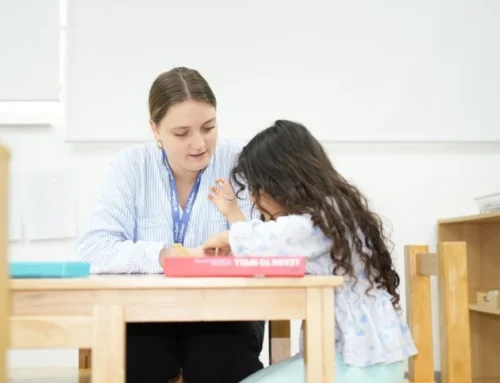In today’s diverse classrooms, communication challenges can greatly affect a child’s learning and confidence. Many schools in Phnom Penh are now recognizing the value of having on-site speech therapists who can work closely with students and teachers. Having a speech therapist within the school environment ensures that children receive timely, individualized support — without disrupting their daily routines.
This article explores the benefits of having on-site speech therapists in schools, particularly in Cambodia, where access to professional speech and language services is becoming increasingly important for inclusive education.
1. Immediate Support and Early Intervention
Early identification and timely support are key to improving speech and language outcomes. When a speech therapist is available on campus, teachers can quickly refer a student who shows signs of speech delay, stuttering, or pronunciation difficulties.
An on-site therapist can observe students in real-time, assess their needs, and provide direct intervention within days — not weeks. This early intervention is especially crucial for children with speech and language delays, articulation issues, or developmental disorders such as autism.
At OrbRom Center’s speech therapy program, early intervention is a cornerstone of therapy. Many Cambodian schools partnering with therapy centers find that early action not only improves communication but also boosts confidence, classroom participation, and overall academic progress.
2. Collaboration Between Teachers and Therapists
On-site speech therapists are not just service providers — they become part of the school’s educational team. They can work directly with teachers to integrate communication goals into classroom activities.
For example, a teacher who notices a student struggling to follow directions can collaborate with the speech therapist to introduce visual aids or structured language prompts. Over time, this teamwork enhances both the student’s learning experience and the teacher’s ability to support children with diverse communication needs.
Collaborative programs like those promoted through OrbRom’s special needs intervention services emphasize shared strategies between educators and therapists, ensuring every child’s goals are reinforced throughout the school day.
3. Convenience for Parents and Schools
For many families in Phnom Penh, commuting to a therapy clinic can be difficult due to traffic, work schedules, or transportation costs. Having an on-site therapist removes these barriers by offering sessions within the school day.
Parents can stay informed through progress updates without needing to leave work or rearrange their schedules. Schools benefit as well — they can market their on-site therapy services as part of a holistic education approach, appealing to both local and international families seeking inclusive learning environments.
Furthermore, collaboration between the therapist and school staff ensures smoother communication about progress, attendance, and support strategies, leading to better outcomes for each child.
4. Consistency and Contextual Learning
Speech therapy is most effective when children can practice new skills in real-life situations. On-site speech therapists can provide therapy in natural contexts — during playtime, group work, or classroom discussions.
This integrated approach helps children generalize speech and language skills faster. For example, a therapist may help a student practice sentence formation during a reading activity or reinforce turn-taking skills during play.
Schools that partner with OrbRom Center often note that students show faster progress because therapy goals are reinforced throughout the school day, not just during isolated sessions.
5. Building Inclusive School Environments
Inclusive education is about meeting the needs of all learners. By having on-site speech therapists, schools demonstrate their commitment to inclusion — creating a space where every child, regardless of ability, has access to communication support.
This approach benefits not only children with diagnosed speech or language difficulties but also multilingual learners adjusting to English or Khmer as a second language. Therapists can guide teachers on pronunciation support, vocabulary development, and classroom strategies to foster confidence in speaking and listening.
Inclusive programs supported by professional therapists align with Cambodia’s growing emphasis on quality education and child development — values shared by OrbRom’s preschool program and assessment services.
6. Professional Development for Teachers
Having a speech therapist on campus also serves as a valuable learning resource for teachers. Through workshops, consultations, and informal discussions, teachers can learn to identify early signs of communication disorders, adapt their teaching methods, and use language-rich strategies in the classroom.
When educators understand how to support speech and language development, it not only benefits the identified students but improves communication and literacy outcomes for the entire class.
Conclusion
The benefits of having on-site speech therapists in schools extend far beyond speech improvement. They foster early intervention, build teacher capacity, and promote inclusion within the learning environment.
In Phnom Penh, where awareness of special education and therapy services is growing, schools that integrate speech therapy into their daily framework take a powerful step toward inclusive, child-centered education.
To learn how your school can collaborate with licensed professionals, visit OrbRom Center’s Speech Therapy Services in Phnom Penh — a trusted provider supporting children’s communication and learning development across Cambodia.
We are the only Preschool specialized on children with special needs in PhnomPenh.
- Internationally qualified teachers
- Cambodia’s largest sensory room
- Outdoor swimming pool
- Covered outdoor playground
📞 Phone: 077.455.993
Telegram Link: https://t.me/OrbRom





